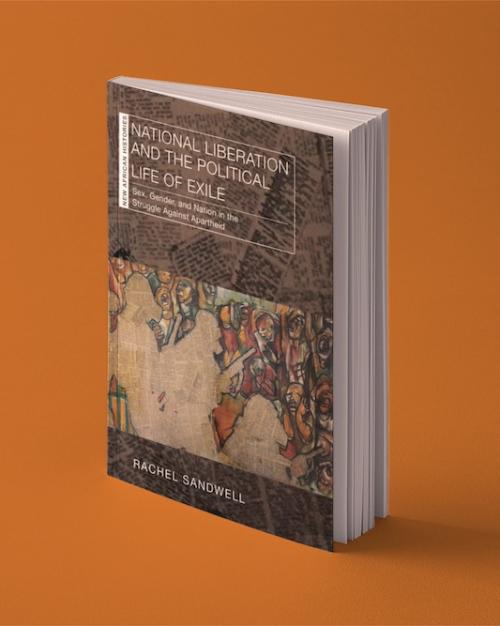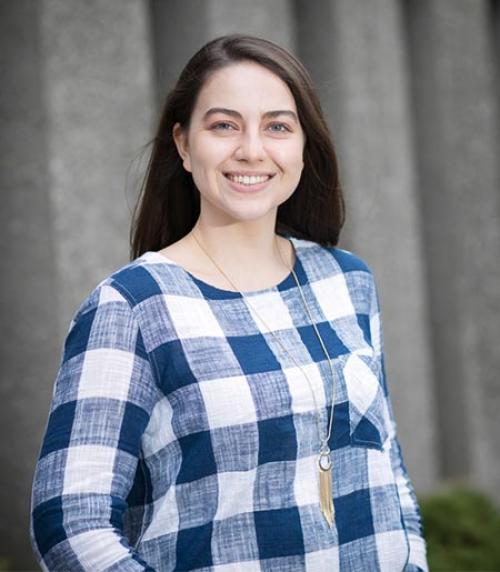Emma Korolik
Sociology & English
Wall, NJ
What is your main extracurricular activity? Why is it important to you?
Throughout most of my time here, my main extracurricular activity has been teaching in various capacities. I tutor at New Roots Charter School on the Ithaca Commons each week, and I’m currently working in a fourth grade classroom at Belle Sherman as a teaching assistant. I also teach creative writing classes each semester for Cornell Splash!, which is a program that brings seventh through 12th graders to college campuses to take classes on a variety of subjects taught by undergraduate and graduate students. For the past two years, I have also served as a teaching assistant for SOC 2710: Social and Political Context of American Education, and I am currently facilitating a race dialogue for the Intergroup Dialogue Project. Being on the teaching side of education, I’ve developed a new appreciation for educators and the amount of time, energy and passion that goes into their work. I’ve also grown both as a teacher and a learner myself. I’ve had to contemplate how different identities and learning styles affect class dynamics and students’ abilities to participate effectively in the classroom, which has in turn forced me to think critically about my own style of learning and how that might influence the way I teach. As a future educator, I think this type of self-reflection is invaluable, and I feel incredibly lucky to have gotten a head start while still in college.
What Cornell memory do you treasure the most?
One of the experiences I treasure the most is the month I spent in Italy as a part of Cornell's Imagining Rome: Art Studio and Creative Writing Workshops in Italy summer program. I lived in a huge apartment with seven other people in the heart of Rome, steps away from the Tiber River and a short walk from the Pantheon and the Colosseum. The people I lived with have become some of my closest friends at Cornell, the professor who taught my Intermediate Narrative Writing class is now my English major advisor and the journal entries I wrote and photos I took in Italy continue to inspire my writing.
What do you value about your liberal arts education?
What I value most about my liberal arts education is its interdisciplinary nature. Being able to recognize and expand on the connections between coursework in a variety of subjects is an incredibly important skill. Not only has the interdisciplinary nature of my studies allowed me to examine issues from a multitude of perspectives, though: it has also helped me to better internalize the information I am learning, and it has made my work that much more interesting and rewarding. It’s become a sort of game to see how I can connect all my classes each semester. During my junior spring, for example, I remember connecting my readings on Kant and Aristotle in my Literature as Moral Inquiry class to similar pieces we were reading in my Topics in Social and Political Philosophy class, which in turn related to readings assigned in the Intergroup Dialogue Project section on race that I co-facilitated. That summer, I took a class on international development from a feminist perspective, and we discussed the concept of third world feminisms; the seminal text on the subject was written by the wife of my Literature as Moral Inquiry professor.
If you were to offer advice to an incoming first year student, what would you say?
So many people will offer you advice on how to make this big university seem smaller, but I want to challenge you to do the opposite: once you’ve made Cornell seem small, make it big again. Through clubs and other extracurriculars, residence halls, majors and minors, etc., you will find your niche, and it will be so easy to stay within those comfortable spaces for your entire Cornell experience. Don’t be afraid, though, to step out of your comfort zone. Take a class outside of your minor(s), major(s), even your college – just for fun. Attend lectures or performances by people or groups you’ve never heard of before. Explore Ithaca. Cornell can be a bubble, so I challenge you to pop it!




